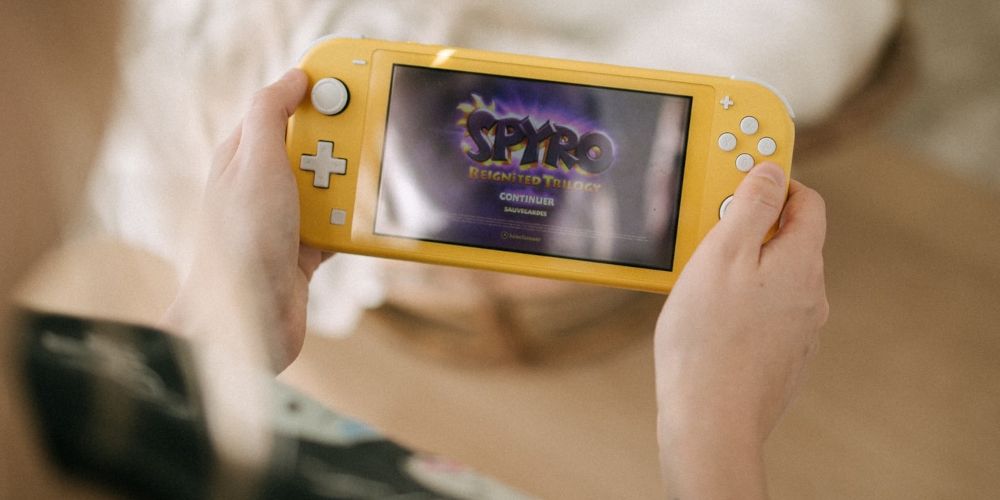Cheating is in our DNA. Humans are constantly looking for the easiest and fastest way to do something, even outside of video games.
If the same standards for cheating in video games are applied to our everyday life, then we can technically say that driving an automatic car is cheating, and so is buying something you can't afford using a credit card.
When we "cheat" in our everyday life, why is it so frowned upon in video games? Taking a shortcut isn't always detrimental, which is something that so many gamers fail to understand.
A Brief History of Cheat Codes
Cheat codes have been around since the advent of video games. In the early days of gaming, game testers actually needed cheat codes.
If you had to test a game on a deadline, you'd obviously want the ability to skip through portions of the game or gain invulnerability. Otherwise, you'd be stuck replaying the same rage-inducing levels over and over again.
Some might argue, "The testers were the ones who needed cheat codes, not the players," but this argument is null. While game designers might've created cheat codes with playtesters in mind, the designers ended up fueling cheat code culture anyway.
When the late Kazuhisa Hashimoto created the Konami Code in 1986, he did it because the game he was working on, Gradius, was too hard. The cheat code was overlooked before the game's release, and by the time developers realized they left it in, it was already too late.
Since then, the Konami Code has graced several other games, including Contra, Mario Party, Castlevania: Harmony of Dissonance, and even Bioshock Infinite. The Up, Up, Down Down, Left, Right, Left, Right, B, A sequence unlocks anything from extra lives to powerups and secret levels. Over the years, the Konami Code has become common knowledge and is often referenced in pop culture.
The Konami Code isn't the only iconic cheat code out there. Other codes were disclosed through game guides, gaming magazines, and books dedicated to cheat codes. When players got stuck or wanted to have some extra fun, they could enter a code that gave them an extra perk or revealed an Easter Egg.
We rarely see cheat codes in modern games today, namely because the gaming industry has declared a war on "cheating."
The War on Cheating
The "cheat" in "cheat codes" gives it a horrible connotation. Why can't we name it after something it actually represents? "Easy mode codes," "secret codes," or even "shortcut codes," would be a much better fit.
Over time, game developers began imposing consequences on those who used these so-called horrible, very bad cheat codes. In Banjo-Kazooie, entering too many world or note door-opening cheats will permanently wipe your save file. And in Gradius III, the successor to the very game that piloted the famous Konami Code, entering the Konami Code will grant you a broken ship.
These are just two examples of many punishments, some of which are more severe than others. But what doesn't make sense is the fact that developers are punishing gamers for taking advantage of something they left in the game. If someone pays money for a game, shouldn't they be able to do whatever they want with it?
Some games today pay tribute to cheat culture. Syro: Reignited Trilogy, Saints Row IV, and XCOM 2 all have cheat codes that unlock abilities or give you an advantage. However, most modern games punish you for cheating by disabling achievements and trophies.
Modern developers don't want you to cheat—they want you to purchase extras via DLC, or hand over cash for some in-game currency. Including a code that gives you endless in-game money wouldn't be profitable, now would it?
That said, cheating in an online multiplayer game is an entirely different story. In these cases, a punishment or ban for entering cheat codes is understandable. But developers shouldn't extend punishments for single-player games, or for people playing with a small group of friends.
Cheat Codes Should Be Embraced
Whether someone wants to gain invincibility or skip tons of levels, why not let them? Games are an escape into a different world, and maybe that world is one that lets you take the easy way out with a cheat code.
No one should feel ashamed to use a cheat code to fight an impossible boss. Casual gamers especially struggle with harder games, and having cheat codes at least allows them to get through the game.
If you're adamant against using cheat codes, that's fine. Gaming is all about having the freedom to decide how you want to play the game, whether that's with cheats or not.
